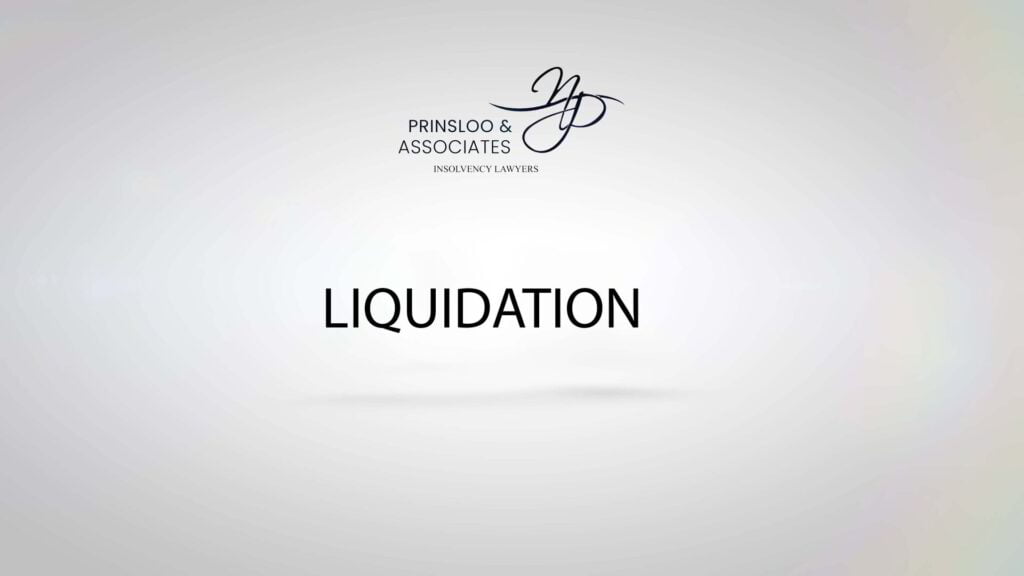What is Liquidation : Once a company is liquidated, the company is closed and deregistered at the Companies Offies. The company cannot trade any longer. All creditors and debtors must take part in the winding up process and cannot take legal action against the company. The liquidator stands in the shoes of the directors and is in control of the company once a liquidator was appointed after the process.
Every situation is unique. If you would like to know how we can Restructure Your company and help you to Liquidate to get rid of debt, click on the button below and make your freedom call today. You will talk to a specialist attorney and find out what the process is.
A Liquidation can be forced or voluntary
A company can be voluntarily liquidated by the directors and shareholders of the company, or it can be forcefully liquidated by a creditor or creditors. A director can also forcefully apply for the liquidation of a company. When a company is voluntarily liquidated, the company can be liquidated in either the High Court with a court application, or at the Companies Offices by means of a Special Resolution that the directors and shareholders sign. If there is conflict between directors/shareholders and there is a deadlock, one or some of them can bring a forced liquidation application in the High Court. If all directors and shareholders are not in agreement that the company must be liquidated, then the company cannot be liquidated in the Companies Officies and a liquidation application must be lodged at the High Court.
Any creditor can apply for the liquidation of the company by bringing a court application. If a company is liquidated voluntarily, we refer to it as a friendly liquidation. If it is an agressive liquidation brought by a creditor or a director, we refer to it as a forced liquidation. A liquidation is friendly if the directors and shareholders agree to the liquidation. It is agressive if somebody that is “unhappy” with the company brings the liquidation application
What happens after liquidation
After liquidation no creditor may institute legal action against the company and any legal action taken will be suspended. The one reason for this is because the company does not exist any longer once it is liquidated and cannot be sued or legal action already started cannot be completed. (unless the liquidator completes the legal action). The second reason is that because the liquidator is “in charge” of the company, the liquidator is the only person who can decide whether the company will proceed with the legal action or not. Usually there are not sufficient funds available to litigate, which means in such cases the legal action will be stopped and fall away. If a legal action was instituted against the company before liquidation, the liquidator will only continue with the case if there are funds available and if there is a good prospect of success that could yield more income for the company’s creditors. All court cases must be removed from the court roll or at the very least postponed until the liquidator has confirmed what action the insolvent estate of the company is going to take with regards to the legal action. **This only applies to legal actions instituted before Liquidation, as no legal action can be instituted against the company afterwards.
Concursus Creditorum
In a liquidation an interesting process takes place, namely concursus creditorum. This means that no creditor may take any legal action against the company because all the creditors become one “body” and they all must take part in the winding-up process. This is a good thing because of one creditor issues summons against a company and attached all of the assets of the company, there will be nothing left for the other creditors. With liquidation all the creditors must stop legal action and share in the proceeds of the assets (if there are any assets) in a certain order. This is a structured process that protects both the creditors as well as the company.

